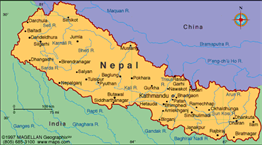OPIOID SUBSTITUTION THERAPY IN NEPAL
This case study explores learnings generated during the establishment of Nepal’s national opioid substitution therapy (OST) programme.
10 Nov 2017The estimated 52,000 people in Nepal who inject drugs face a range of health problems, including an elevated risk of blood-borne infections: nationally 6.3% of people who inject drugs are HIV-positive and between 22 and 47%, depending on the region, are infected with hepatitis C.

Since 2009, through a series of technical cooperation projects on harm reduction implemented on behalf of Germany’s Federal Ministry for Economic Cooperation and Development (BMZ), the Deutsche Gesellschaft für Internationale Zusammenarbeit (GIZ) has worked with national and international partners to expand the availability of OST in Nepal. Starting from an existing pilot project authorised by the Ministry of Home Affairs, and informed by Germany’s own experience with OST, advisors with the harm reduction projects have systematically built up six pillars of a sustain- able national OST programme.
Share this on:
